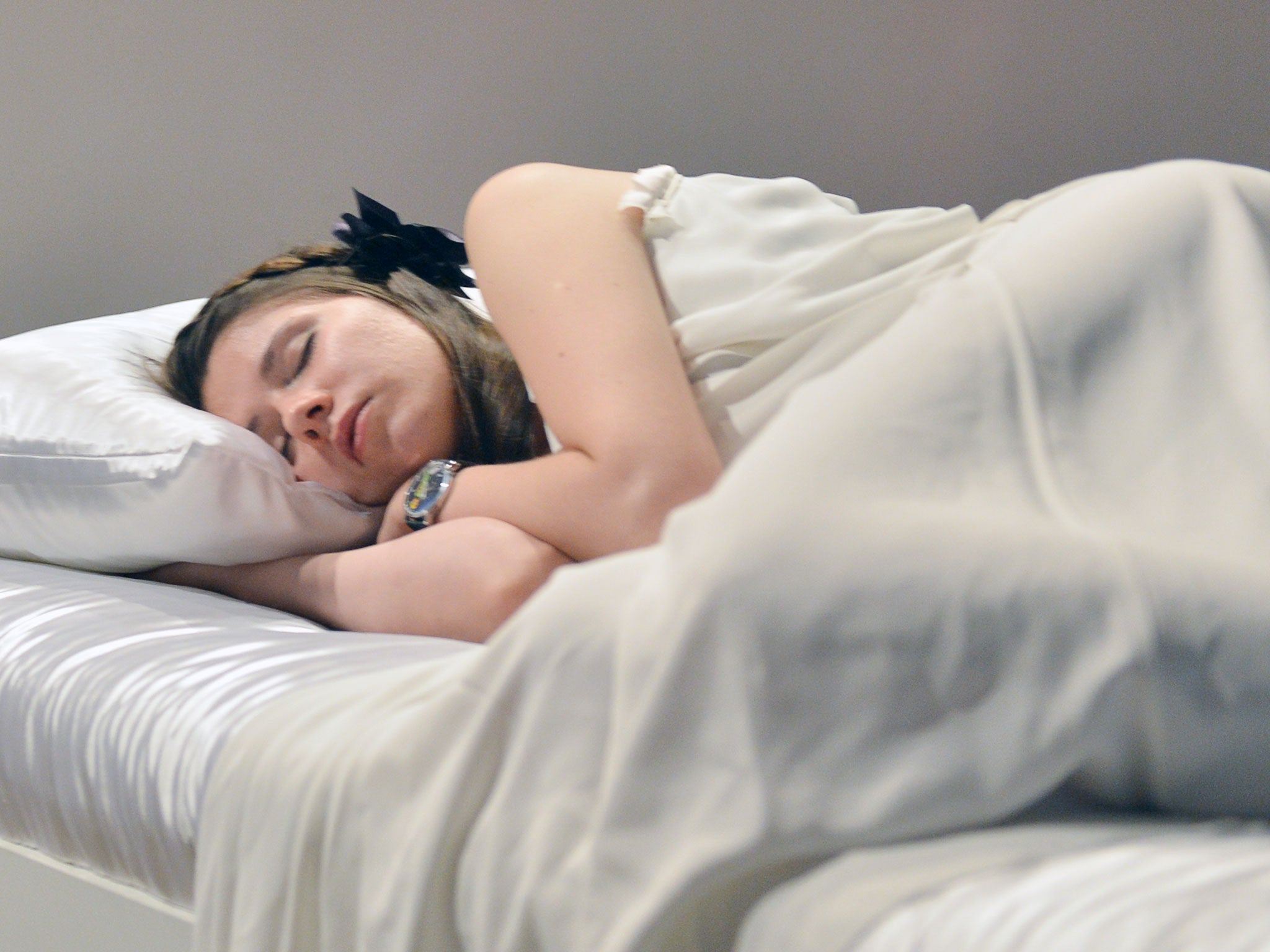How much sleep do I need? National Sleep Foundation updates its guidelines
The National Sleep Foundation has published a report updating sleep recommendations for all ages

Your support helps us to tell the story
From reproductive rights to climate change to Big Tech, The Independent is on the ground when the story is developing. Whether it's investigating the financials of Elon Musk's pro-Trump PAC or producing our latest documentary, 'The A Word', which shines a light on the American women fighting for reproductive rights, we know how important it is to parse out the facts from the messaging.
At such a critical moment in US history, we need reporters on the ground. Your donation allows us to keep sending journalists to speak to both sides of the story.
The Independent is trusted by Americans across the entire political spectrum. And unlike many other quality news outlets, we choose not to lock Americans out of our reporting and analysis with paywalls. We believe quality journalism should be available to everyone, paid for by those who can afford it.
Your support makes all the difference.New sleep recommendations may encourage people to stay in bed for an extra hour or two, as experts have updated guidelines for the ideal amount of sleep for each age group.
The National Sleep Foundation and a panel of 18 medical scientists and researchers reviewed over 300 sleep studies to try and find the precise amount of time a person should sleep, according to their age.
While the simple answer is that there is no perfect sleep number to fit each individual, the NSF published a report updating sleep recommendations for all ages.
The ideals are as follows:
Newborns (0 - 3 months): 14-17 hours per day
Infants (4 - 11 months): 12-15 hours per day
Toddlers (1 - 2 years): 11-14 hours per day
Pre-school children (3 - 5 years) 10-13 hours per day
School age children (6 -13 years) 9-11 hours per day
Teenagers (14 - 17 years) 8-10 hours per day
Younger adults (18 - 25 years) 7-9 hours per day
Adults (26 - 64): 7 - 9 hours per day
Older adults (65 years+) 7-8 hours per day
The recommendation for adults has not changed. However the report did add two new categories – younger adults and older adults. Sleep needs vary depending on age, the Foundation said, and can be seriously impacted by lifestyle and health.
Another recent study in Norway revealed that the longer teenagers spend using electronic devices such as smartphones and tablets, the worse their sleep will be.
A study of almost 10,000 16-19 year-olds found that more than two hours of screen time after school linked strongly to delayed and shorter periods of sleep.
Experts said the evidence is so strong that health watchdogs should overhaul guidelines for electronic device use by teenagers.
Those who spent more than four hours staring at a screen per day were three and a half times likelier to sleep fewer than five hours a night, and 49 per cent more likely to take more than an hour to fall asleep. A healthy adult will typically take 30 minutes.
"The recommendations for healthy media use given to parents and adolescents need updating, and age specific guidelines regarding the quantity and timing of electronic media use should be developed," researchers said in a press release.
Join our commenting forum
Join thought-provoking conversations, follow other Independent readers and see their replies
Comments